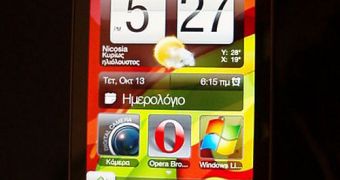A new book published by an expert at the Massachusetts Institute of Technology (MIT) shows that the trend we are currently experiencing, of putting our electronic devices in the foreground of our lives, is very worrying, and that it needs to be addressed.
The author proposes a very simple experiment that everyone can carry out, in order to convince people that what she is writing about is now something distant, but a thing that is actually happening.
Next time you're in a public place, but especially in malls, schools, kindergartens, or playgrounds, just keep an eye out for how many parents pay more attention to their tablets, laptops, mobile phones, smartphones, iPads and so on than they do to their own childrne.
MIT professor Sherry Turkle noticed this trend in her everyday life, and she provides an analysis of the phenomenon in the book “Alone Together,” which was published this month by Basic Books.
The expert say that this type of attention is getting to become compulsive, rather than a simple action. The only way to solve this issue is by prompting a large-scale rethinking of the way we interact with the most cutting-edge technology.
“There is a real state of confusion about whether or not we have each other’s attention in our always-on connectivity culture,” explains the scientist, who is the Abby Rockefeller Mauze Professor of the Social Studies of Science and Technology.
“Families fight over this issue. It’s time for a correction, because we still have a chance to change things,” she adds. Turkle works within the MIT Program in Science, Technology and Society.
“Yes, we know teens text all the time, but that doesn’t mean they don’t want their parents’ undivided attention when they are picked up from school or sitting at dinner,” the professor believes.
“Not getting attention is a critical problem among adolescents, who are also terrible at asking for attention, because they’re playing it cool. So you have kids really struggling to forge relationships with their parents,” she says.
On the other side of the barricade, parents are more and more absorbed by devices aimed precisely at their age groups, while at the same time complaining about their kids' dependency on modern technologies.
Teens in the survey Turkle conducted told her that they are already used to their parents texting and entering the so-called “Blackberry zones” throughout the day, and even during family dinners.
The expert is far from denying the advantages that the always-on culture has, but says that people should never lose track of what's really important, and ignore their families in the process. This goes for both parents and their teenage kids.

 14 DAY TRIAL //
14 DAY TRIAL //